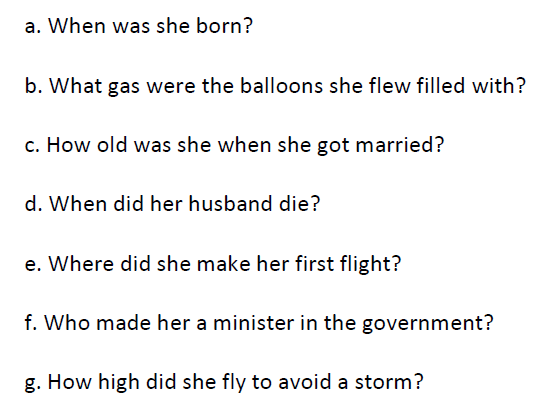In Part 1 on Reading Strategies, we looked at some of the language reasons why we might want pupils to read texts in the Target Language. There are of course other reasons than just to meet words and structures. Reading can be a source of pleasure, interest, and learning. It can allow for greater independence than language lessons sometimes permit. And the texts can give a new perspective on the world, and help pupils realise that French is for real, not just for lessons. We can over-egg some of these benefits. Pupils are not necessarily interested and motivated to read in the Target Language. Reading can be superficial, and it can be hard for pupils to apply reading strategies independently and without support.
What we are trying to do is to teach a way of reading which builds understanding, through cumulative and cyclical reading. Knowledge of the subject matter combines with understanding of known words to build a picture where more and more of the pieces fall into place: new words, the words that link and structure the sentence, the grammatical form of the words. All constantly checked against the emerging picture.
We want pupils to be confident in making and testing assumptions, and then revising them if it doesn't quite make sense. This is what the best readers do and others do not.
Here's a text on the French balloonist Sophie Blanchard:
The first strategy is to look through the text for features we expect to find in a historical text:
The point is to start to build understanding by asking pupils to do a quick first reading of the text, without getting stuck. Some pupils will simply find the names and numbers. Others will start to read the context. Names, numbers, lists, speech, technical terms, known words, cognates... There are always things you can ask pupils to locate in a text. And they can learn to make a first reading in this way.
The next thing we do with this particular text is to give pupils questions in English.
The questions guide the pupils through the text. They locate the information and read the detail that is needed. You can ask them to answer in French and in English so that they start to map the meaning of the whole sentence onto the French. Having questions like this makes the text accessible.
Questions like these work well as a teaching strategy. But would it work as an independent reading strategy? I suppose the closest we could come would be for the pupils to ask their own questions and see if the text provided the details they wanted. So for this text, you could watch this trailer for a film about her life. As a trailer, it teases information but keeps the detail back... Then the pupils can look for the missing details in the text.
Another way to make the text completely accessible is to give parallel English and French texts.
We ask the pupils to find the underlined words in the other language. Sometimes these words jump out and are easily identified. Sometimes they push the pupils into reading the French closely, mapping the French sentence onto the English, and exploring the different sentence structure.
In this particular example, there is a further use to this. The words the pupils are finding in this part of the text, are deliberately chosen to help them read the end of the story:
We have built up their knowledge and interest in the historical character. We have equipped them with some key vocabulary. We have shown them how to build up meaning over several readings of the text. Now we can ask them to read the ending of the story for themselves.
This is part of a worksheet I leave for cover lessons. So pupils ARE working independently, reading the text and extracting information.
They have the activities on the sheet to support and guide them. The worksheet is deliberately guiding them through the text. But are they learning and deploying strategies?
I would say that they are at the beginning of this process. They are learning important strategies such as:
You build up understanding by reading repeatedly.
You can find words you know.
You can recognise new words that are similar to English or from their place in a sentence.
Your cultural knowledge helps see the pieces of the jigsaw.
You can find specific pieces of information.
Words you figure out in one sentence may come up again later.
Little words that hold sentences together are important and so are word endings. These should all fall into place as you make your understanding more focused and accurate.
You can figure out what it says from the words. And you can figure out words from what it is saying.
You may have made assumptions that need revising.
And most importantly: You may not understand all the words. But you can puzzle out what some of it says.






No comments:
Post a Comment